Ant. J osephus, Antiquities
esv English Standard Version
hcsb Holman Christian Standard Bible
lxx Septuagint
MT Masoretic Text
niv New International Version
nrsv N ew Revised Standard Version
reb Revised English Bible
The book of Joshua has been a companion for some years now. I first began reflecting on it seriously while working in South Africa in 199396, when its themes of leadership and land were particularly important as the process of dismantling apartheid began though it was always the unfashionable text in comparison with Exodus. It was in the chapel of the Baptist Theological College in Randburg that I first preached on a passage in it. On my return to Australia I preached through the whole book at St Ives Baptist Church when I took up the pastorate there; if anyone manages to trace tapes of those sermons they will probably find some echoes of them here, though my thinking on the book has moved on considerably since then. In particular, the challenges of New Atheism were not yet on the horizon, which meant I could take a far more innocent position on the issues of violence and warfare which have troubled so many than I can now. Perhaps I should have been more aware of them even then rather than waiting for others to point them out, but in the context in which I was working the issues of leadership seemed more pressing.
Since my move to the UK in 2003 I have continued to wrestle with this challenging text. The issue of violence within it has become much more important, and it is no exaggeration to say that Joshua has been the centre of a storm, becoming the text to which many point when wishing to dismiss the claims of biblical faith. God, it is claimed, emerges as a moral monster who practises genocide, and not the good and holy one that the gospel has claimed. This is not an issue of the book of Joshua in relation only to non-believers; it has also become a problem for many Christians, one that has been of evident importance in places where I have lectured and preached. I have had these people particularly in mind as I have written this book, though I hope it is not focused too narrowly so that we miss out on other important themes within Joshua.
As always, the writing of a book such as this is something that happens with the support of others. Although it is passing through enormous changes at the moment, St Johns College, Nottingham, has been a congenial place to think, pray and write, and I want to record my thanks to the staff and students for making it so. As always, my wife Lynne has been a source of continued support and encouragement, and it has been a particular delight to have found the odd day to write in the library at Cliff College where she works. I can never thank her enough, but I hope that noting it here might at least be a start.
david g. firth
Billings, Rachel M., Israel Served the Lord. The Book of Joshua as a Paradoxical Portrait of Faithful Israel (Notre Dame: University of Notre Dame Press, 2013).
Block, Daniel I., The Gods of the Nations: Studies in Ancient Near Eastern National Theology (2nd edn, Leicester: Apollos, 2000).
Boling, Robert G., Joshua: A New Translation with Notes and Commentary (Introduction by G. Ernest Wright) (Garden City: Doubleday, 1982).
Bonhoeffer, Dietrich, The Cost of Discipleship (Complete edn, London: SCM Press, 1959).
Brueggemann, Walter, Divine Presence Amid Violence: Contextualizing the Book of Joshua (Milton Keynes: Paternoster, 2009).
Butler, Trent C., Joshua (Waco: Word Books, 1983).
Coote, Robert B., Joshua, in Leander E. Keck (ed.), The New Interpreters Bible (Nashville: Abingdon Press, 1998), pp. 553720.
Craigie, Peter C., The Book of Deuteronomy (Grand Rapids: Eerdmans, 1976).
Creach, Jerome F. D., Joshua (Louisville: Westminster John Knox, 2003).
Davis, Dale Ralph, No Falling Words: Expositions of the Book of Joshua (Grand Rapids: Baker, 1988).
Dawkins, Richard, The God Delusion (London: Black Swan, 2006).
Earl, Douglas S., Reading Joshua as Christian Scripture (Winona Lake: Eisenbrauns, 2010).
__, The Joshua Delusion? Rethinking Genocide in the Bible , with a response by Christopher J. H. Wright (Cambridge: James Clarke & Co, 2010).
Faley, R. J., Joshua, Judges (Collegeville: Liturgical Press, 2011).
Firth, David G., The Spirit and Leadership: Testimony, Empowerment and Purpose, in David G. Firth and Paul D. Wegner (eds), Presence, Power and Promise: The Role of the Spirit of God in the Old Testament (Nottingham: Apollos, 2011), pp. 259280.
__, Passing on the Faith in Deuteronomy, in David G. Firth and Philip S. Johnston (eds), Interpreting Deuteronomy: Issues and Approaches (Nottingham: Apollos, 2012), pp. 157176.
Gangel, Kenneth O., Joshua (Nashville: Broadman & Holman, 2002).
Goldingay, John, Joshua, Judges and Ruth for Everyone (London: SPCK, 2011).
Gray, John, Joshua, Judges, Ruth (Grand Rapids: Eerdmans, 1986).
Gundry, Stanley N. (ed.), Show Them No Mercy: Four Views on God and the Canaanite Genocide (Grand Rapids: Zondervan, 2003).
Harris, J. Gordon, Joshua, in J. Gordon Harris, Cheryl A. Brown and Michael S. Moore, Joshua, Judges, Ruth (Peabody: Hendrickson, 2000), pp. 1119.
Hawk, L. Daniel, Every Promise Fulfilled: Contesting Plots in Joshua (Louisville: Westminster John Knox, 1991).
__, Joshua (Collegeville: Liturgical Press, 2000).
__, Joshua in 3-D: A Commentary on Biblical Conquest and Manifest Destiny (Eugene: Cascade, 2010).
Hess, Richard S., Joshua: An Introduction and Commentary (Leicester: IVP, 1996).
__, Israelite Religions: An Archaeological and Biblical Survey (Nottingham: Apollos, 2007).
Hillers, Delbert R., Covenant: The History of a Biblical Idea (Baltimore: Johns Hopkins University Press, 1969).
Hofreiter, Christian, Genocide in Deuteronomy and Christian Interpretation, in David G. Firth and Philip S. Johnston (eds), Interpreting Deuteronomy: Issues and Approaches (Nottingham: Apollos, 2012), pp. 240262.
Howard, David M. Jr, Joshua (Nashville: Broadman & Holman, 1998).
Hubbard, Robert L. Jr, Joshua: The NIV Application Commentary (Grand Rapids: Zondervan, 2009).
Johnston, Philip S., Civil Leadership in Deuteronomy, in David G. Firth and Philip S. Johnston (eds), Interpreting Deuteronomy: Issues and Approaches (Nottingham: Apollos, 2012), pp. 137156.
Keil, C. F. and F. Delitzsch, Joshua, Judges, Ruth, I & II Samuel (Grand Rapids: Eerdmans, 1956).
Koorevaar, H. J., De Opbouw van het Boek Jozua (Heverlee: Centrum voor Bijbelse Vorming-Belgie, 1990).
Krause, Joachim J., Exodus und Eisodus: Komposition und Theologie von Josua 15 (Leiden: Brill, 2014).
Lilley, J. P. U., Understanding the EREM , Tyndale Bulletin 44 (1993), pp. 160177.
Longman, Tremper III and Daniel G. Reid, God Is a Warrior (Grand Rapids: Zondervan, 1995).
Madvig, Donald H., Joshua, in Frank E. Gaebelein (ed.), The Expositors Bible Commentary (Grand Rapids: Zondervan, 1992), pp. 239374.
Magnusson, Sally, The Flying Scotsman (London: Quartet, 1981).
Mann, Thomas W., The Book of the Former Prophets (Eugene: Cascade, 2011).
McConville, J. Gordon and Stephen N. Williams, Joshua (Grand Rapids: Eerdmans, 2010).
McGrath, Alister, Why God Wont Go Away: Engaging with the New Atheism (London: SPCK, 2011).
Merling, David Sr., The Book of Joshua: Its Theme and Role in Archaeological Discussions (Berrien Springs: Andrews University Press, 1997).
Moberly, R. W. L., Old Testament Theology: Reading the Hebrew Bible as Christian Scripture (Grand Rapids: Baker Academic, 2013).
Motyer, Alec, The Message of Exodus: The Days of Our Pilgrimage (Leicester: IVP, 2005).
__, Discovering the Old Testament (Leicester: Crossway, 2006).

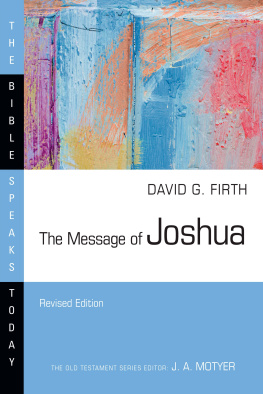
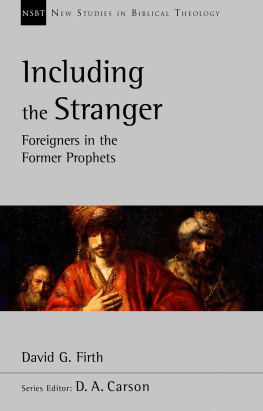


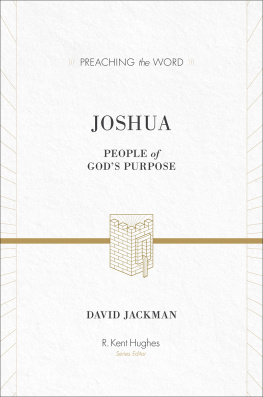
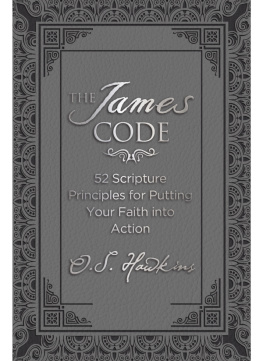
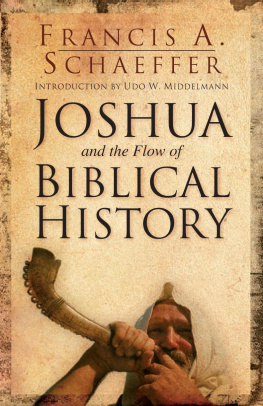
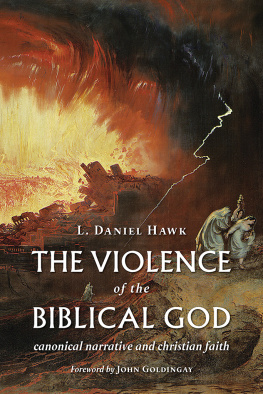
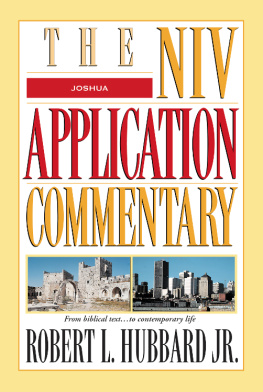
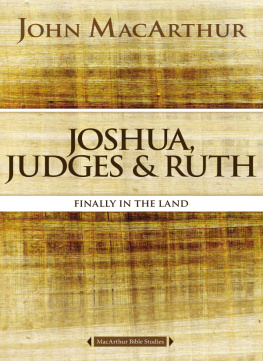
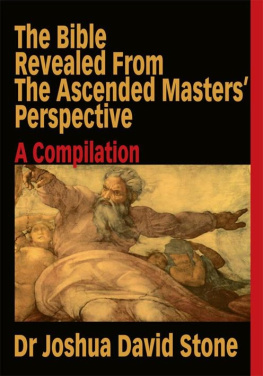
![Joshua Backfield [Joshua Backfield] - Becoming Functional](/uploads/posts/book/120483/thumbs/joshua-backfield-joshua-backfield-becoming.jpg)